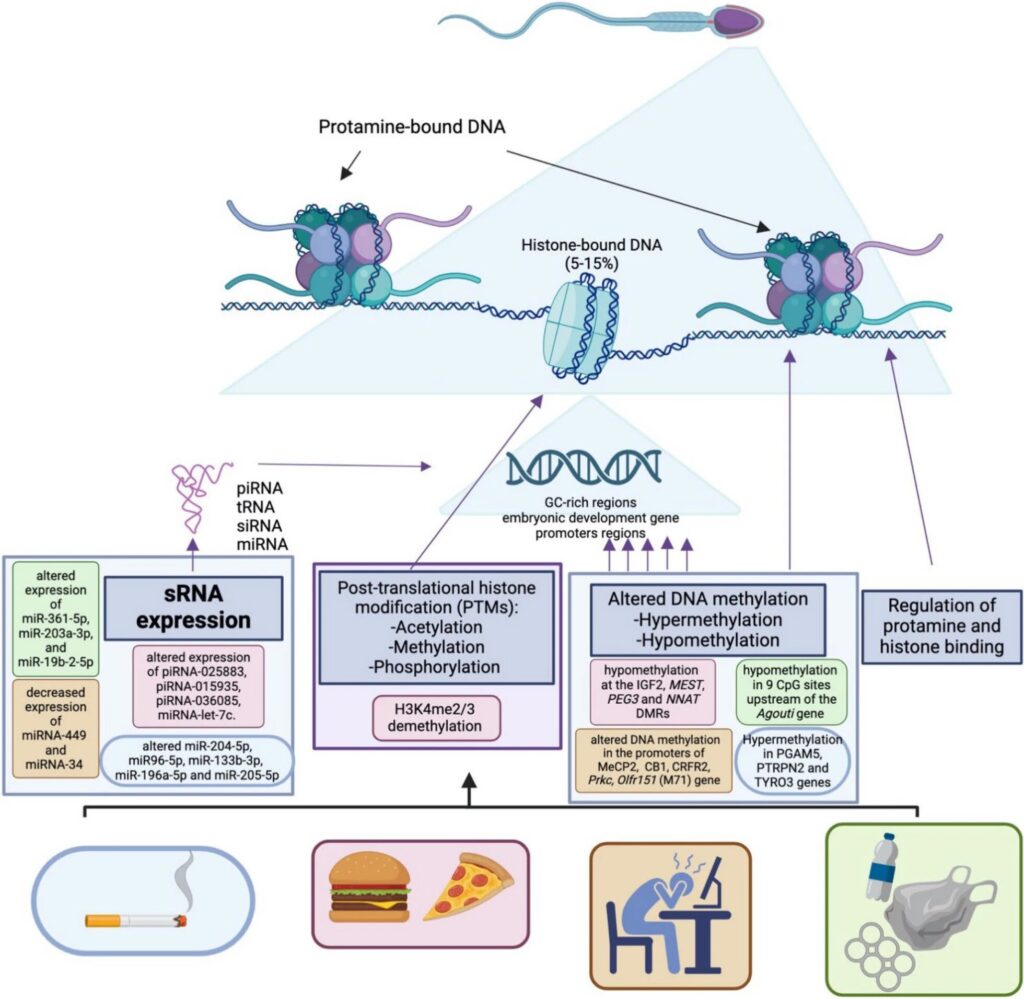
In a groundbreaking review published in Clinical Epigenetics, researchers have synthesized compelling evidence that paternal lifestyle choices and environmental exposures significantly alter sperm epigenetic marks. These changes have profound implications, affecting not only sperm quality and fertilizing ability but also early embryo development and long-term health risks in offspring. The study highlights the influence of factors such as diet, obesity, smoking, endocrine-disrupting chemicals, and stress on the sperm epigenome.
The review, conducted by a team of experts and published on October 17, 2025, underscores the importance of paternal health in reproductive success. It reveals that epigenetic “signatures” left by paternal factors in sperm can accompany the genome at fertilization, potentially affecting the health trajectory of future generations.
Key Findings on Paternal Influences
Among the critical discoveries, the review highlights how obesity and poor diet, particularly those high in fat and sugar or deficient in folate, are linked to altered methylation and small non-coding RNA (sncRNA) profiles. These changes can impair sperm parameters and lead to metabolic dysfunction in offspring.
Smoking is another significant factor, associated with differentially methylated regions in genes related to anti-oxidation, insulin signaling, and spermatogenesis. It also correlates with reduced sperm motility and morphology.
Exposure to endocrine-disrupting chemicals (EDCs), such as BPA and phthalates, can induce transgenerational DNA methylation changes, affecting fertility and increasing disease risk. Stress experienced by fathers before conception is also linked to altered sperm miRNAs/piRNAs and methylation, with observable behavioral and metabolic effects across generations in animal models.
Implications for Assisted Reproductive Technologies (ART)
The review further explores the implications of these findings for assisted reproductive technologies (ART). It notes that male body mass index (BMI), diet, and alcohol intake are correlated with embryo quality and intracytoplasmic sperm injection (ICSI) outcomes. The study suggests that epigenetic sperm profiles could serve as biomarkers to improve ART success rates.
According to the researchers, preconception interventions such as weight management, smoking cessation, a balanced diet including folate, regular physical activity, and reduced toxin exposure may help reverse adverse sperm epigenetic marks, thereby enhancing fertility outcomes.
Mounting Evidence and Future Directions
While maternal epigenetics has been extensively studied, this review highlights the growing body of evidence for paternal epigenetic influences. It acknowledges the presence of confounding factors such as genetic background and fluctuating behaviors, calling for longitudinal, controlled human studies using advanced methylation and RNA-sequencing platforms.
The researchers emphasize that male preconception health is a modifiable factor that can significantly improve fertility, embryo viability, and the lifelong health of children. They advocate for incorporating epigenetic screening or lifestyle programs into fertility care to enhance ART outcomes and reduce intergenerational disease risk.
Next Steps and Practical Guidance
The study outlines several next steps, including the establishment of large, longitudinal human cohorts to determine causality and dose-response relationships. It also calls for standardized epigenome assays, such as MethylationEPIC and small-RNA profiling, to be integrated into andrology and ART workflows.
Additionally, trials testing the impact of preconception lifestyle interventions on sperm epigenetic readouts and clinical endpoints are recommended. Practical guidance for individuals includes maintaining a healthy weight, prioritizing a balanced diet with adequate folate, avoiding smoking and excessive alcohol, reducing exposure to EDCs, managing stress, and supporting sleep and physical activity.
Prospective parents are encouraged to discuss preconception health with fertility specialists and consider participating in studies monitoring sperm epigenetic markers. Such proactive measures could lead to improved fertility outcomes and healthier future generations.
More information: Ayazhan Akhatova et al, “How do lifestyle and environmental factors influence the sperm epigenome? Effects on sperm fertilising ability, embryo development, and offspring health,” Clinical Epigenetics (2025). DOI: 10.1186/s13148-025-01815-1
The findings from this comprehensive review highlight a crucial aspect of reproductive health, emphasizing the need for further research and practical applications to support healthier generations to come.






